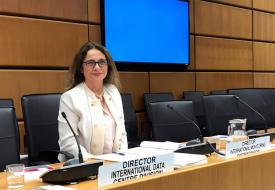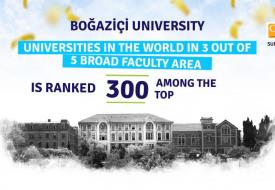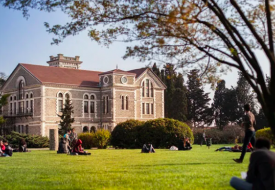“Philosophy should be taught starting in primary education”
SATS: Northern European Journal of Philosophy remarked the problem of “the crisis of philosophy” by inviting and also calling for papers exploring such topics as why philosophy should matter, how it should matter, what sort of contributions philosophy can make and what might be done to restore the intellectual centrality of philosophy*. The journal devotes a special issue to these topics, titled “The Crisis in Philosophy,” to be published in December 2019; but we asked similar questions to Prof. Dr. Kenneth Westphal and discussed not only the role of philosophy as a discipline and as a way of thinking in self-recognition and self-development of human beings, but also the interaction between philosophy and society within the age of digitalization and globalization.
Why it is still important to study philosophy in the age of digitalization?
KRW: How do you sort genuine from fake, relevant from irrelevant or more important from less important information in this ‘information age’? All of these tasks require critical assessment, and philosophy is still the discipline best helps students learn and develop these skills, more than other disciplines. It is not only about becoming a good student, it is also important for business and for conducting one’s life well. As the economy, business activity and commerce become ever more global, businesses need employees who have enough resourcefulness to assess whether or how a topic is important to a business enterprise, who can present their findings intelligibly and who not only report their assignments but also assess them and their relevance. The discipline of philosophy gives its graduates skills that are widely transferrable. However, under-funding of departments and of education generally has severely hampered education world-wide. The result is philosophically and culturally a disaster, because students are not able to develop these kinds of skills, and especially not the skills of self-assessment, which is the most difficult skill any writer or thoughtful person needs to learn. There are ways to learn how to assess one’s own piece of writing, and philosophy emphasizes this as nothing else does. These writing skills are equally skills in thinking and in speaking, clearly and cogently – and in learning how to benefit from informed critical assessment by others: Assessment requires understanding, of the issue at hand, of one’s own understanding of that issue, and of the understanding others may offer of that issue.
“Philosophy can contribute, centrally, to humanity and to solving the problems we face”
However, especially in developing countries, the general attitude towards philosophy is to undervalue the discipline by stressing job or career choice …
Yes, I know; this view is very familiar, and not at all new. My first reply is that I am a human being who can and does take responsibility for what I do; what about you? I know that attitude, because I also have background in engineering and in construction (building). When I began my studies, engineers focused on solving a given problem, but the first step is to assess and specify the right way to specify the problem, and to specify the adequacy of any prospective solution. Not only in philosophy but also in engineering or in building (anything), people must be able to assess the situation, the problem, the resources, the design and the execution or implementation; this requires much more than solving equations. Programs of engineering education have changed in last 30 years, coming to emphasize this aspect more and more because engineers must have the abilities to communicate, understand, assess and advise. It is fine with me whether people become engineers, builders, scientists or whatever else; but we must engage in all of those disciplines, professions or activities intelligently and to be alert to what we might not know that we ought to know. So that we do not blunder as our technologies become more complex, sophisticated and inter-locking (whether by design or accidentally), and their consequences become more wide-ranging, this kind of critical, precautionary reasoning and assessment becomes ever more important. I understand that many people view philosophy, humanities or even social sciences as irrelevant, but with all due respect, these people did not receive the robust general education that they should have had at university. These kind of philosophical skills and issues must be acquired and developed in general education, because what we need most is an intelligent, capable and responsible next generation; this requires robust liberal arts education. Why liberal arts? Because these are the arts – the skills, abilities, attitudes and behavior – one needs to be a free and responsible citizen. If we do not provide such education, we will make ever worse blunders, though we have plenty of them already on record, such as adverse climate change.
So, do you think that philosophy can help humanity handle current issues and crises in the world?
Yes, I am quite sincere about this and I am a firm advocate of philosophy education starting in primary education. There is now interest in philosophy for children and I welcome that. It certainly can be taught, learned and studied much earlier than it is. However, philosophy for children only a start, yet it can be very interesting for children. I must stress that it is one thing to study history of ideas; it is quite another to learn how to think about and to assess those ideas and their relevance, depending on the issue at hand; these skills are crucial. Turkey has no monopoly on this quite common gap between philosophy and society. For 40–50 years there has been such stress on getting a good job by getting a good education. Of course, people should be trained and educated to get good jobs and to do them well; there also should be good jobs for them to do. However, work is one of many aspects of life. We also need education and moral integrity to contend with the rest of life as well as with doing our jobs properly; there is much more to life than a paycheck.
“We are seeing the effects of under-funding of the discipline of philosophy in higher education.”
Is there also debate in the academic environment whether philosophy is in crisis?
Today, many of difficulties within the field of philosophy are fostered by chronic under-funding of higher education and education generally for the last 30 years. We are seeing the effects of this, but if we are to have a functional society, we need sufficiently competent adults, and there is much more to do as an adult than just your job. These issues about general competence have been chronically short-changed by government budgets for 30–40 years. Perhaps I may belong to the last generation after World War II to be educated before funding was a problem. There is a tendency inside philosophy to try to model philosophy on more specialized kinds of science; in many programs students get trained in ever more mutually independent, isolated, irrelevant sub-specialties. So the crisis in philosophy has much to do with how to pursue philosophy constructively and in ways which foster education, understanding, assessment and solving problems. As an undergraduate student I was lucky to have some very good teachers who were senior, experienced philosophers; I learned enormously from them. They were true past masters of the craft and deeply informed in the history of these issues; the philosophy coming out that breadth and depth is fabulous. It is still being done today, but people working in that comprehensive, systematic way are becoming fewer and fewer; this is part of the crisis in philosophy.
What is the impact of digital age in studying philosophy according to you?
Digitalization is actually helping to study because one can do enormous amounts of research online; previously it could not been done without years of effort and travel. But, this is what not getting taught enough, yet it can be taught in high schools and even earlier than that: Students need to know how to do library research, how to figure out which sources deserve their time and effort, and how to assess the relevance of any source to the topic the student now researches. I was lucky to be taught this starting with the second week of high school (9th year), so I knew what to do at university. The digital age is a fabulous boom, but only if you know how to sort out and assess what really deserves attention and what does not.
“Philosophy has much to do with how to live our lives, and to live our lives better than we would otherwise.”
It is a fact that philosophy will always matter, but it is also a fact that people cannot wait to read, write or even ask questions as everything becomes digitalized. Do you think that it will continue like this, will people be more or less interested to ask these kind of questions?
I do not know, but I must remain hopeful; we need not merely to survive, but to live at least decently; to achieve even that benchmark takes a fair amount of wisdom and self-discipline. I do not say philosophy has a monopoly on these issues and skills, but it is one of the few disciplines which still trains and educates in these regards. I do not know whether people will be more interested, but if people want to survive they had better become more interested. I work both in moral philosophy and theoretical philosophy and there is plenty left to do in theory of knowledge and in history and philosophy of sciences. I am not saying everyone needs to become a philosopher; that would be unfortunate – but the importance of these basic core features of general education and of liberal arts education never goes away. They make all the difference in the world between merely living and living well and decently enough, living responsively and responsibly enough. Good education cannot do it all by itself, but it is really hard to achieve these necessities without it.
Lastly, would you want to say something to future students of philosophy?
There is too much I would like to say, but I would encourage students to try to realize that philosophy has a lot to do with how to live our lives and live our lives better than we would otherwise. Philosophy also helps you gain better self-understanding and better understanding of how we are and should be responsible.
Kenneth Westphal has completed his 4th year in Boğaziçi University, Department of Philosophy. His research and teaching focus on rational judgement and rational justification, both in moral philosophy and in theory of knowledge. He has just completed a book in moral philosophy that includes both ethics and justice, which shows how to identify and to justify the core principles of a sound natural law account of morals and justice, while avoiding contentious issues in moral psychology, metaphysics or theology.
* You can see the mentioned call for papers, here.















